The Importance and Impact of Using the Right Keywords in Academic Research

Research often begins with the question, “Which topic to select?”
While searching for and reviewing existing studies and papers, as part of literature reviews and trend analyses, researchers often face challenges. They might struggle to find recent work by active researchers or rely on their own methods to navigate existing research and the broader research ecosystem. This process can be time-consuming, requiring significant effort.
When conducting such preliminary work, finding and analyzing the right keywords is essential to clearly communicate the scope and content of the study and maximize its impact.
- Enhance Search Efficiency: Selecting appropriate keywords helps quickly locate relevant research and filter out unnecessary data, saving time.
- Increase Research Visibility: Using the right keywords makes your research more discoverable, potentially leading to more citations.
- Facilitate Accurate Literature Reviews: Proper keywords ensure you don't miss important studies, contributing to the accuracy and thoroughness of your review.
- Support Collaboration and Networking: Standardized keywords connect you with other scholars researching similar topics, increasing collaboration opportunities.
- Improve Search Engine Optimization (SEO): Keywords boost your research's online visibility, helping it rank higher in academic databases.
- Ensure Precision and Accuracy: Avoiding ambiguity through the use of precise keywords enhances visibility in areas with overlapping or ambiguous topics.
How to Find the Right Keywords Using an Academic Analytics Tool
Scinapse, designed for researchers, identifies suitable keywords for research with just a few searches and clicks, reducing the time and effort required by more than 60-70%, based on our user interviews, compared to traditional methods of conducting prior research, literature reviews, and trend analysis.
(Note: 2024 data had been partially reflected.)
For example, if you know nothing about Developmental Psychology and need to conduct research to determine whether a new field is worth investing in, identify the necessary experts, and more, Scinapse can help streamline this process.
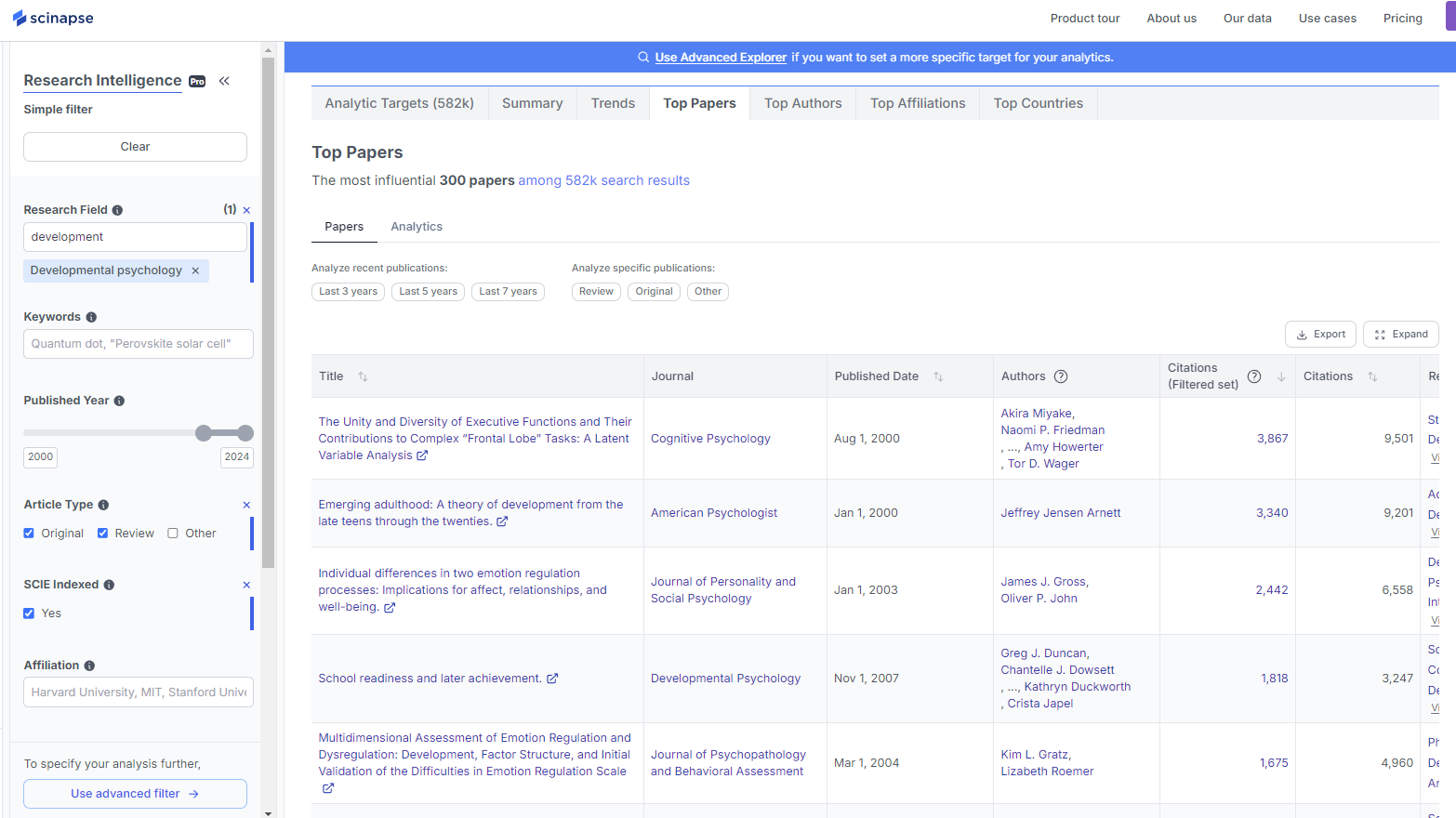
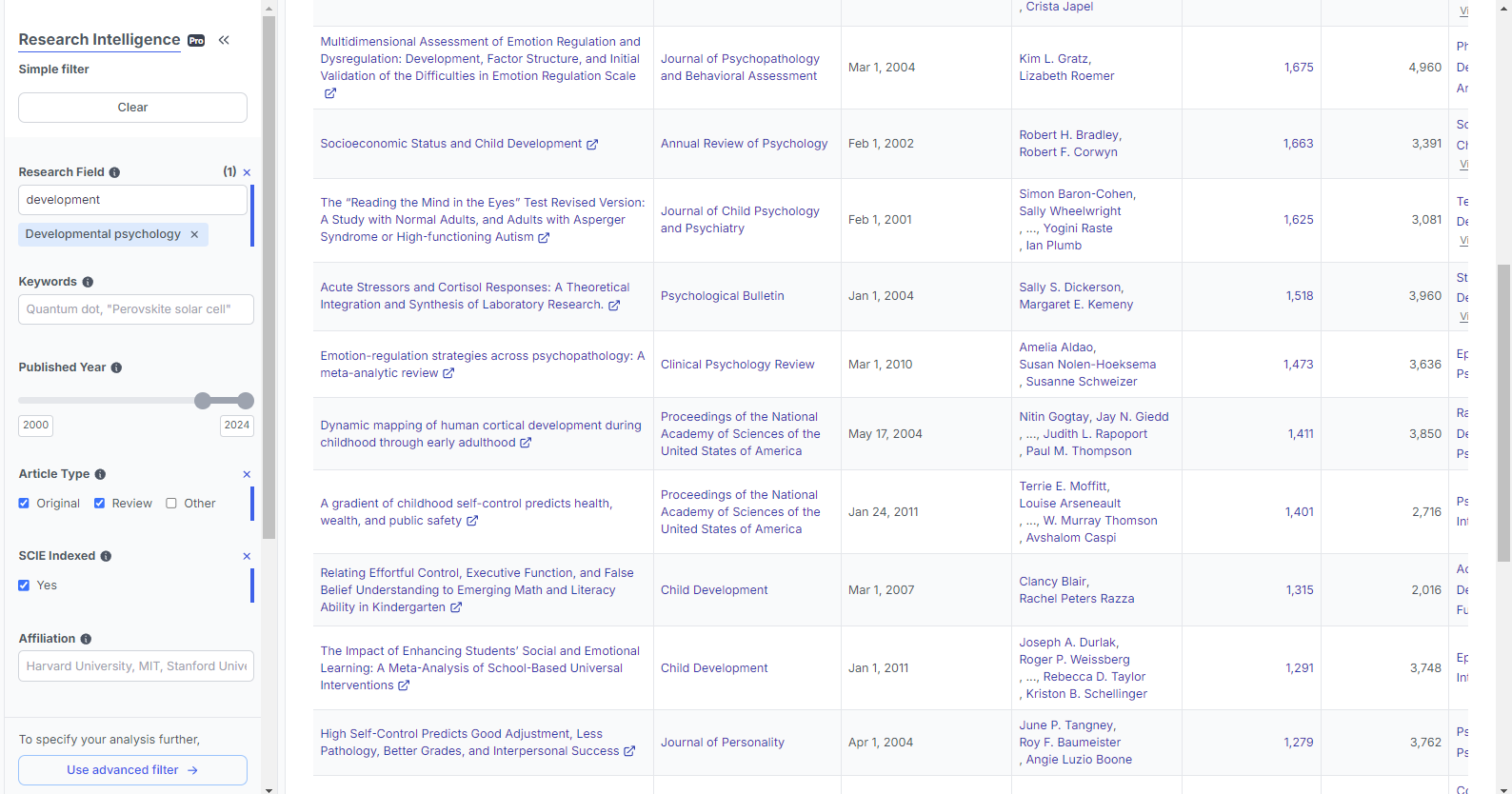
You can enter "Developmental Psychology" into Scinapse Research Intelligence, review the overall insights, and then set desired conditions (such as article type, SCIE indexed, etc.) to view the Top Papers tab. While this process may take some time, you will notice repeated keywords among the research if you examine the similarities or keywords in the studies.
For example, let's focus on "emotional regulation”, which appeared about 3 times among the top 20 papers from screenshot above. You'll also notice that a related term, "self-control”, appears twice. This keyword could be useful later.
Once you identify a new keyword, you can select it and conduct additional searches.
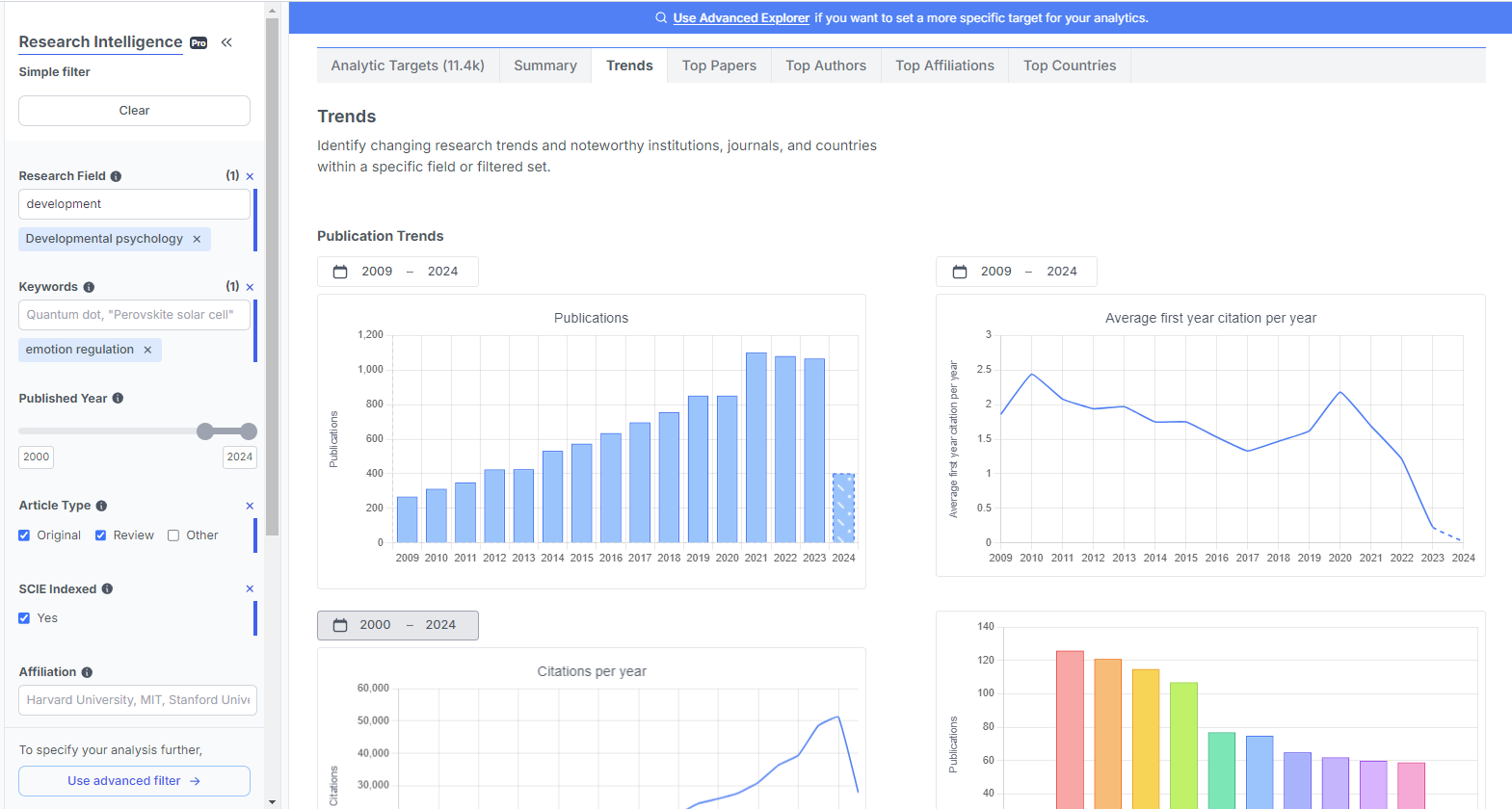
In the Trends section, you will be able to observe that the field has grown steadily over time with continuous growth in publications, with first-year citations dropping sharply right after the COVID-19 pandemic.
(Note : 2024 data had been partially reflected.)
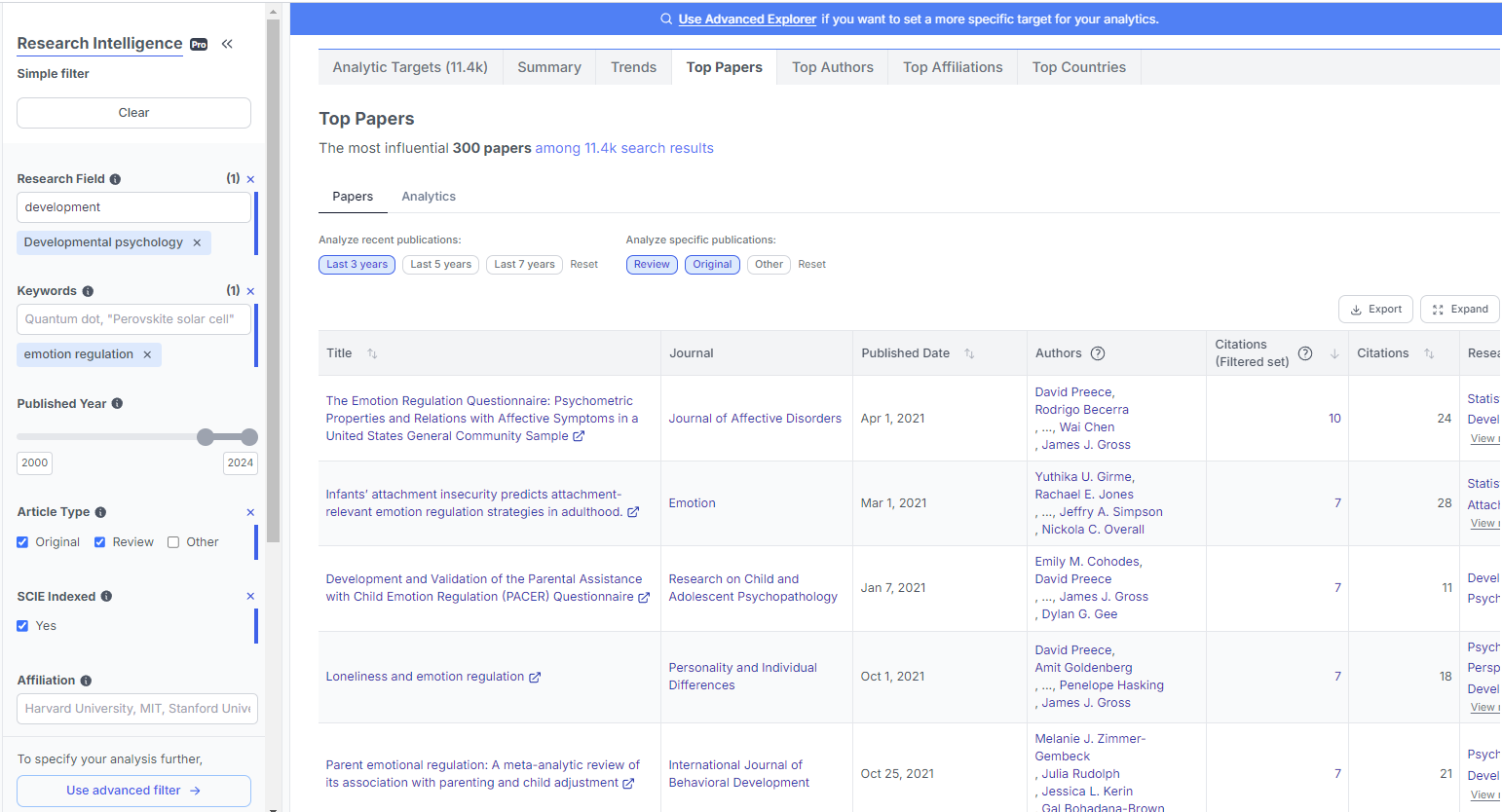
If you need additional recent research trends and keywords on this topic,
you can select the "Last 3 Years" filter and choose the desired article type (”Original” or “Review”) to review previous studies focused on that keyword.
Other paper search engines require you to manually search for this information one by one.
However, Scinapse is designed to provide insights that allow researchers to quickly identify trends, relevant papers, authors, journals, and more. It offers a much more intuitive and multifaceted approach.
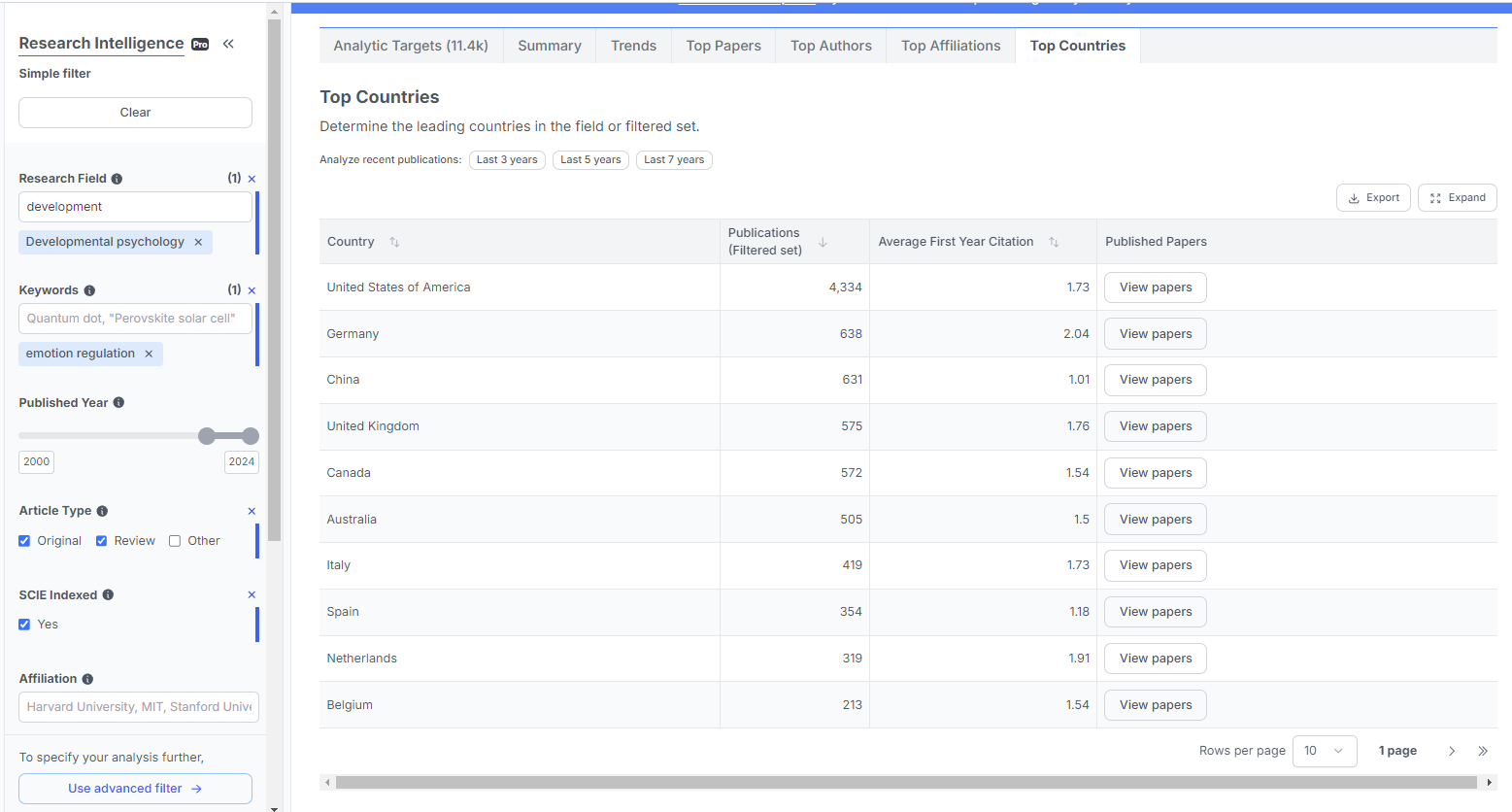
Among the Top Countries, the total number of publications from the US is overwhelmingly high, with over 4,300 publications. However, when it comes to Average First Year Citations, Germany has a rate of 2.04, indicating that research from Germany is consistently cited, at least in terms of quantity.
All of this data is based on the filtered set defined by the user, not the entire raw dataset. What sets Scinapse apart is its focus on providing only the most relevant and specific data that the user is looking for. While other platforms may present all information in a single lump, Scinapse tailors the results according to user-defined conditions, such as filtered sets for h-index, publications, etc. This allows you to quickly find the information you need within a specific area.

Save your time and energy, never re-search again
By leveraging Scinapse, you can significantly reduce the time and effort spent on research.
Scinapse streamlines your research process by providing targeted, relevant data based on your specific needs with the process with its intuitive filtered set and targeted data. Instead of sifting among the overwhelming amounts of information, get exactly what you need quickly, and at the same time efficiently.
Nothing more, nothing less.
Allow yourself to focus on advancing your research, saving both time and energy!
👇🏻 If you need a product tour, try it from here.
written by Geehee Nahm
Never re-search again.
Scinapse is made by researchers for researchers.
Join the next generation of research at ⏯️ https://scinapse.io/
Pluto Labs
Pluto Labs helps researchers focus on their research by improving several inefficiencies in the academic research process. We offer data-driven insights from academic papers, allowing users to easily obtain review-level results for their desired range of papers.
https://pluto.im/

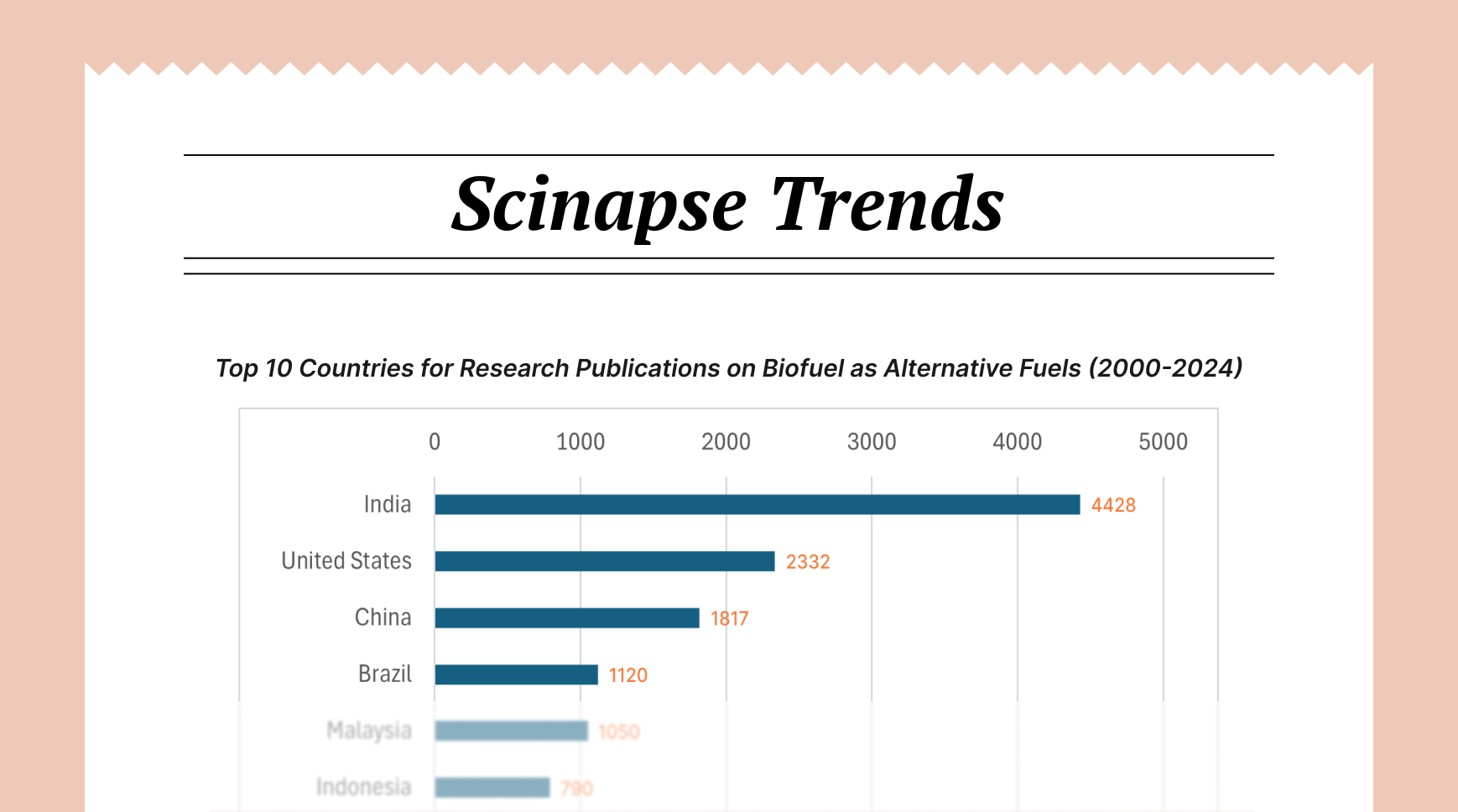
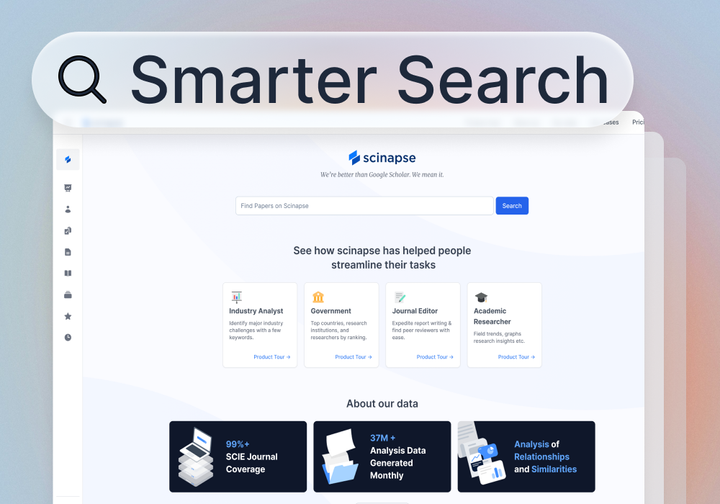

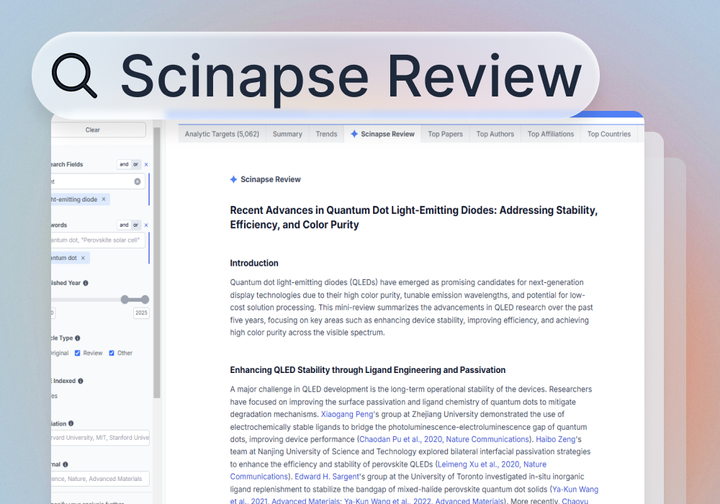
Comments ()